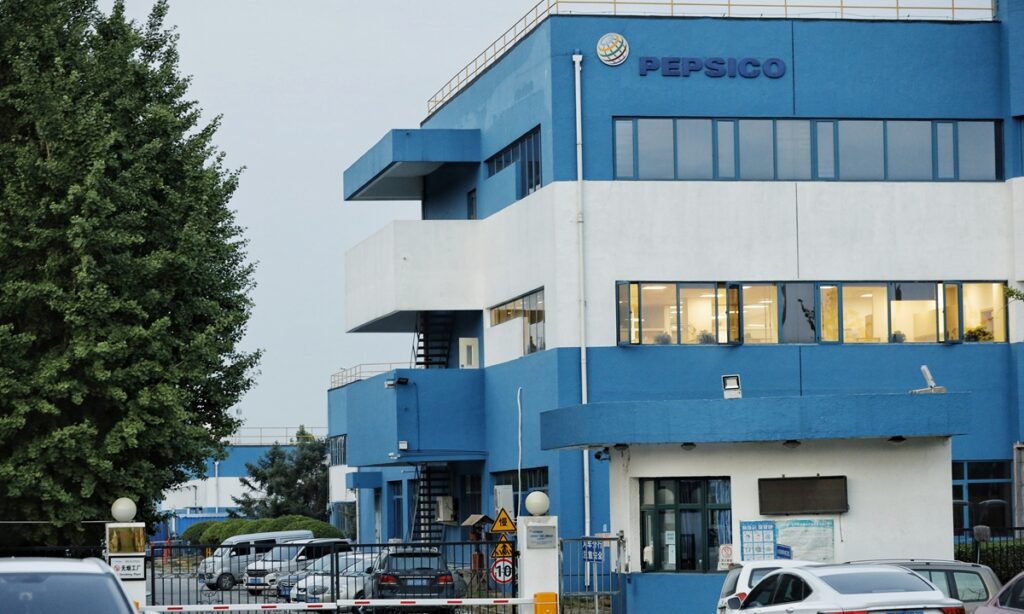COVID-19 infections spark consumers’ discontent, represent ‘a blow’ to business
Eight COVID-19 confirmed cases were reported in PepsiCo Beijing’s chips branch, which caused the company to suspend operations there and triggered wide concerns over the safety of Pepsi products, with experts warning the public over novel coronavirus contamination.
Two of the eight patients had made purchases at the Xinfadi Market, where the latest outbreak in the city emerged.
When an employee in the company that mainly produces Lay’s chips was confirmed to be infected on June 15, PepsiCo immediately suspended production, all stocks were sealed off and outbound transportation was prohibited, said Fan Zhimin, from the publicity department of PepsiCo in China, at the Beijing government’s anti-epidemic press conference on Sunday.
Fan said the company will follow the rules to ensure food safety.
PepsiCo beverage factories across the country, including its Beijing branch, did not find any coronavirus cases.
Beyond the branch in southern Beijing’s Daxing district, Pepsi has chips companies in Wuhan, Central China’s Hubei Province and Shanghai in the Chinese mainland.
After the Beijing municipal government and PepsiCo released the information on Sunday, Chinese consumers swarmed to online platforms to express their concerns over Pepsi products, mostly Pepsi’s cola and chips. Some also recalled the most recent time they had consumed these products and considered having nucleic acid tests.
Feeling panic so much, some consumers planned to throw their Pepsi away in fear of food contamination and some decided to purchase rival brands.
The Global Times visited a few supermarkets and found the chips were still on sale, including those produced by the Shanghai company and a special Beijing roast duck flavor produced by the Beijing branch.
An insider from Beijing’s food and drug regulator department told the Global Times that the agency had not been told to remove the chips from store shelves as of press time.
Whether the Pepsi products were contaminated is still unknown and the company did not reveal which sections those eight infected employees worked in.
Food industry analyst Zhu Danpeng told the Global Times on Sunday that a package of chips normally undergoes raw materials processing, ingredient mixing, formation, drying and packaging. If anyone involved comes in direct contact with the food, the contamination risk will be higher.
It takes about 72 hours for a package to arrive on the shelves after leaving the production line, Zhu said.
Yang Zhanqiu, a Wuhan-based virologist, believed the novel coronavirus could survive about one week in normal room temperatures, or about 20 C.
According to Fan, samples collected from inside and outside the factory were all negative.
PepsiCo carried out large-scale sanitation of its canteen, dressing room, workshop hand-washing area, toilet and assembly lines on June 15 and 20.
All employees were quarantined at home on June 15 and received nucleic acid tests the next day. On June 20, a total of 480 people from the company were transferred to centralized quarantine venues. The results of nucleic acid tests were all negative. At the same time, all employees who lived in shared apartments were put under observation at home.
As of Saturday afternoon, 87 close contacts from the company had been traced and quarantined at designated venues.
Yan Qiang, an analyst specializing in fast-moving consumer goods in Beijing-based Hejun Consulting, told the Global Times on Sunday that if the situation deteriorates – for example, if PepsiCo is labeled by consumers as lacking internal supervision – its sales in China would be “seriously” affected.
“PepsiCo owes consumers an explanation how this happened,” Yan said.
Zhu also believed the incident would be “a blow” to the brand.
PepsiCo products are enjoyed by consumers more than 1 billion times a day in more than 200 countries and territories across the world, the company claimed.
PepsiCo generated more than $67 billion in net revenue in 2019, driven by a complementary food and beverage portfolio that includes Frito-Lay, Gatorade, Pepsi-Cola, Quaker and Tropicana.
A PepsiCo branch in southern Beijing Photo: Li Hao/GT



